On the mend: What's behind the medical rehab facilities boom in Jacksonville?
Since spring 2022, two new standalone medical inpatient rehabilitation facilities have opened in the Jacksonville area. A third is expected to come online this summer and construction is underway on a fourth.
Brooks Rehabilitation's $37 million, 60-bed Bartram Park facility opened in April 2022. Encompass Health's $37.8 million, 50-bed rehabilitation hospital, its first in Jacksonville, followed two months later on the Southside. The $24.3 million, 48-bed Reunion Rehabilitation Hospital is expected to open in late summer or early fall in the Intracoastal West area and Kindred Rehabilitation's $31 million, 50-bed facility on the Westside is projected to open sometime in 2023.
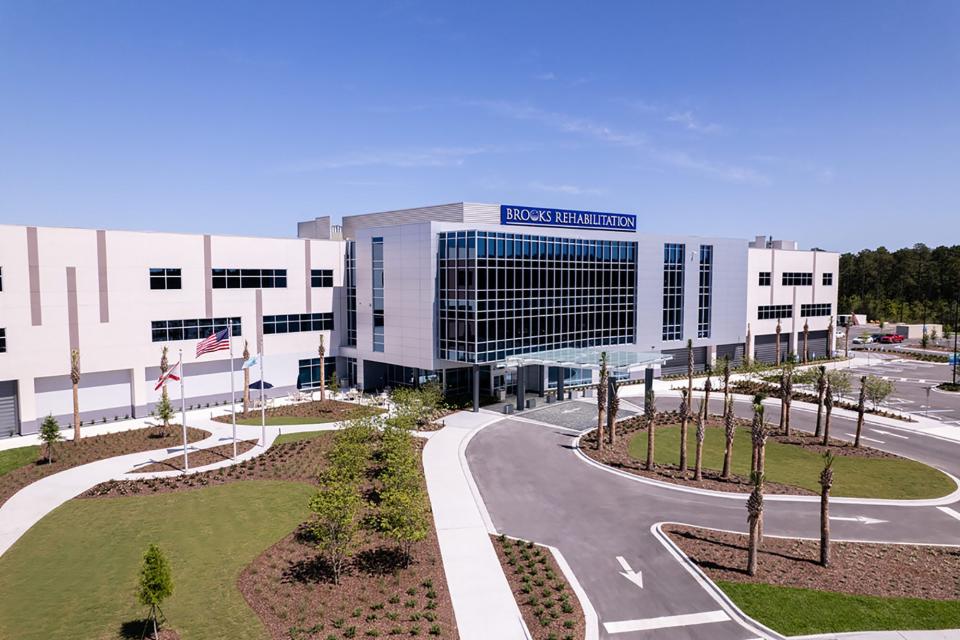
Why has Jacksonville become so popular for medical rehabilitation?
The key impetus was hospital deregulation in Florida in 2019, which eliminated what had been a lengthy state certificate-of-need process that also allowed competitors to protest applications. That deregulation — combined with an ever-swelling population — led to a "building boom" in both rehabilitation and acute care hospitals, according to Doug Baer, president and CEO of Brooks Rehabilitation, which opened its second location in Jacksonville last year.
"We are experiencing significant growth in Northeast Florida," he said. "This growth, combined with an aging population that requires more rehabilitation, has driven the construction of the new hospitals."
The trend is happening nationwide, but "not at the pace that is occurring in Florida," Baer said.
Get ready for more hospitals: Florida poised to greatly deregulate health care.
A 'medical hotspot': Jacksonville physicians tout innovative techniques in health care
Executives at Encompass Health, which bills itself as the nation’s largest owner and operator of inpatient rehabilitation hospitals, agreed. The company plans to open seven more hospitals in Florida the next three years.
Deregulation "opened up the opportunity to more easily expand much-needed inpatient rehabilitation services for many growing retirement communities around the state," according to their statement.
Other factors are advances in medical technology, which mean more people are surviving severe illness and traumatic injuries, and in-home health care.
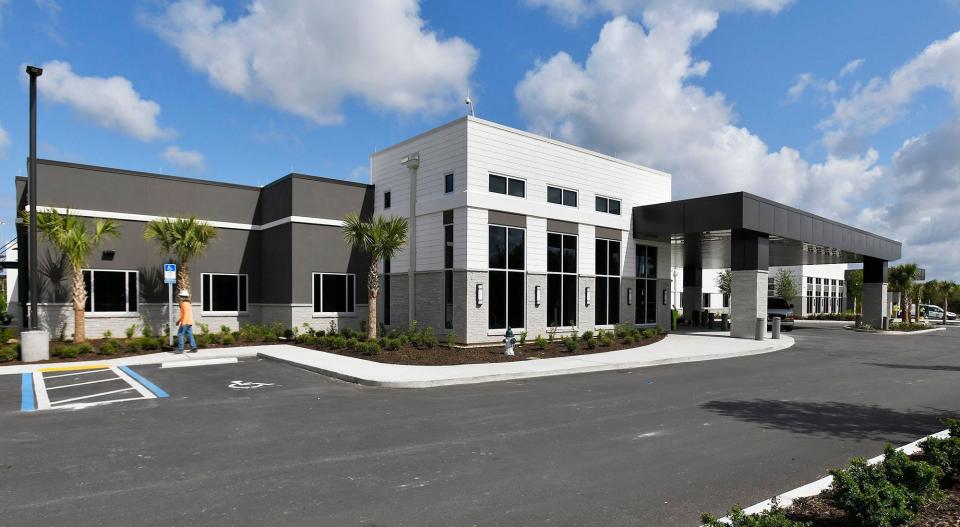
A Kindred spokeswoman said executives familiar with the Jacksonville facility were not available to answer detailed questions. A Reunion spokeswoman only referred the Times-Union to news releases and the company website for information.
What is a medical inpatient rehabilitation facility?
IRFs, in medical parlance, are specialty hospitals or parts of acute care centers that offer intensive inpatient rehabilitation therapy. Patients typically are referred there after stays in acute care hospitals, but some come directly from the community.
Such patients need highly specialized care to help them recover from a serious illness, surgery or injury, such as stroke, spinal cord or brain injury, cancer and organ transplants, according to the American Hospital Association.
Multi-disciplinary teams that may include rehabilitative physicians and specialists, rehabilitation nursing staff, physical, occupational and speech therapists, nutritionists, social workers and counselors provide individualized care for three hours a day.
Brooks at Bartram: New 60-bed rehabilitation hospital set for 2022 opening in Bartram Park
Encompass Health: New 50-bed rehabilitation hospital nearing completion in Jacksonville
How do companies decide where to build?
They study demographics, particularly the senior sector, and required capital investment, among other things.
"Through market research, we identified Jacksonville as an underserved area for inpatient rehabilitation and a high-growth area for the [over age 65] patient population we typically serve," according to the Encompass Health statement.
"Since it is important for patients to be able to receive care in the communities in which they live, we identified the opportunity to add significant value to this community by developing a new hospital that would focus on high-quality clinical outcomes and cost-effective, individualized care," they said.
Reunion Rehabilitation: New 48-bed rehabilitation hospital going up in Jacksonville's Intracoastal West area
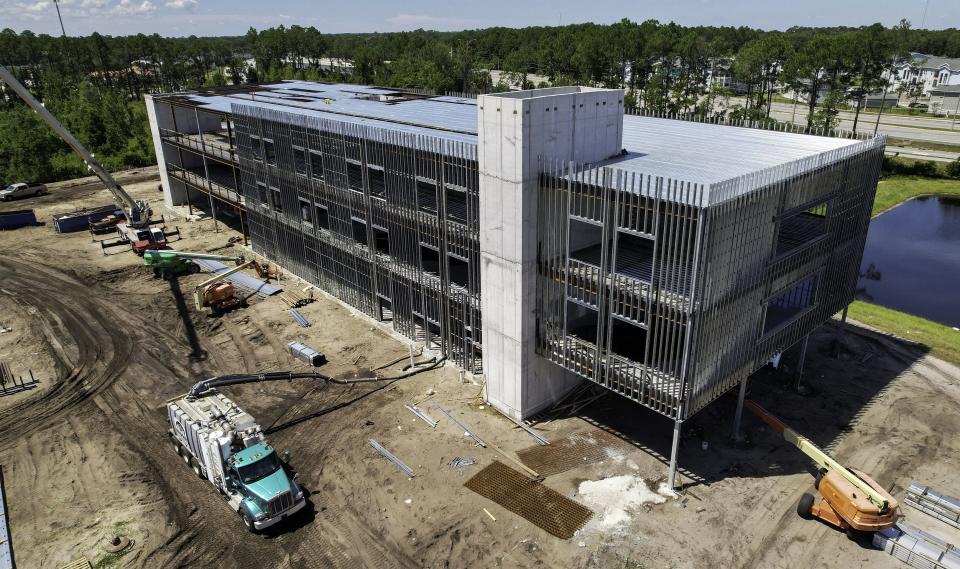
The rehabilitation hospital "complements existing acute care services" for patients who are ready to leave the acute care setting but not ready for home, they said.
Also, they study trends in acute care, since most patients admitted to rehabilitation hospitals come from acute care hospitals, and projected population growth, Baer said.
"Hospitals are long-term investments, so a 20-plus year time horizon is considered," he said.
Does this also mean a boom for physical therapists?
Yes, according to Robert Rowe, executive director of Brooks Rehabilitation's Institute of Higher Learning and president of the Academy of Orthopaedic Physical Therapy.
Since deregulation, many health care organizations "have viewed Florida as an opportunity to grow and expand," he said. "There is no telling what the absolute saturation point is, but until the organizations reach a place when they are not filling their beds, it is likely to see a continued trend of proliferation. … Currently the outlook for physical therapists is excellent."
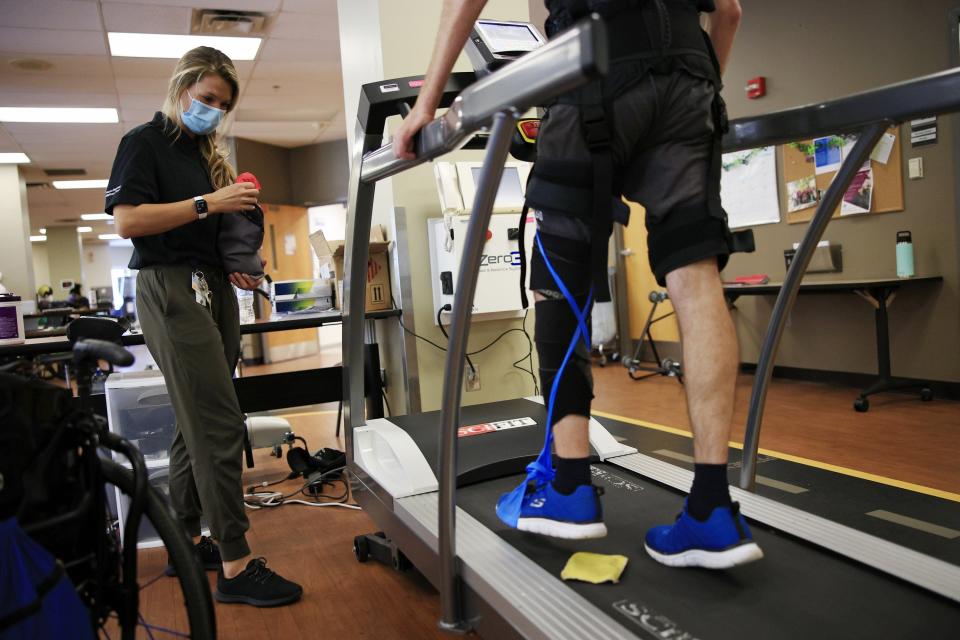
Meanwhile, specialization within physical therapist practice has been evolving for 30 years. The American Physical Therapy Association has designated 10 specialty areas within physical therapy: cardiovascular and pulmonary, clinical electrophysiology, geriatrics, neurology, oncology, orthopaedics, pediatrics, sports, women’s health and wound management.
"As we learn more about various conditions, as well as how to manage people with those conditions, it becomes very evident that if you are not specializing and keeping up with the body of knowledge within an area of specialty, then you are most likely not providing the patients you are managing with the best available care," Rowe said.
That outlook stems not only from the building boom but from the COVID-19 pandemic, people living and staying active longer and a shortage of physical therapists, Rowe said. Another factor is the growing need for their services in non-traditional settings, such as emergency rooms and being embedded within organizations such as Google.
What treatments, illnesses or injuries are getting the most attention these days?
First of all, the needed "level of care" determines whether patients go to rehabilitation facilities or skilled nursing centers after leaving acute-care hospitals, Baer said.
"From a rehabilitation perspective, less complex conditions such as joint replacements may be good candidates to receive services in an alternate setting," he said. "We have two skilled nursing facilities, which are less intense than [rehabilitation] hospital care, where we treat many rehabilitation patients. More complex conditions such as a brain injury, stroke or spinal cord injury need a hospital level of care."
Some diagnoses are more commonly treated in rehabilitation hospitals vs. alternative settings, he said. Generally, these are the more complex conditions.
Nearly 20% of Encompass Health patients are stroke survivors, officials there said. Many other patients have had amputations or hip fractures.
Kindred Rehabilitation: Treating stroke, brain and spinal cord injuries, Kindred rehab hospital planned for Jacksonville's Westside
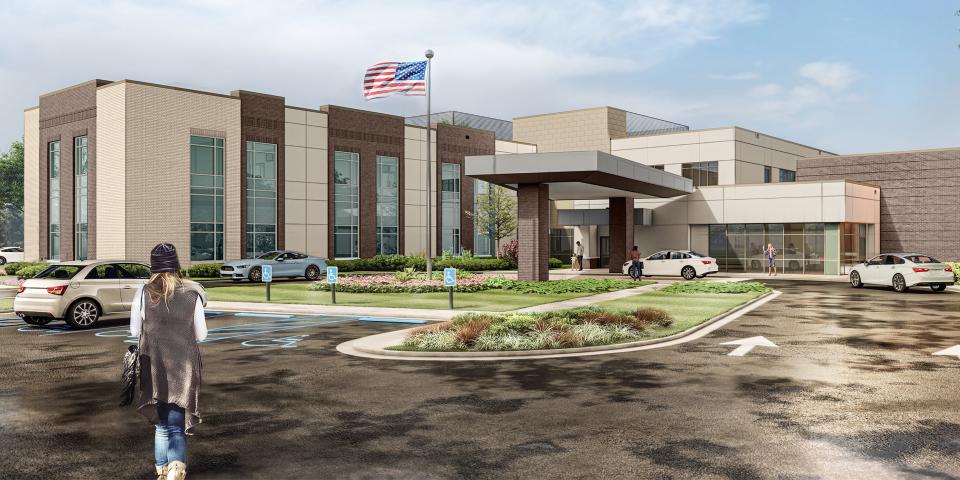
Rowe said an increasing amount of rehabilitation therapists' time is being spent on long COVID-19 cases, musculoskeletal injuries among the aging from falls or wear and tear, and management of neurologic patients and people with neck and/or low back pain.
The Brooks Institute was founded to help therapists specialize, he said. They start their careers as generalists because the specialization, residency and fellowships that are part of a physician's training are not required for physical and occupational therapists.
Brooks Rehabilitation: 'If you like me, you'll love my twin sister': St. Augustine pair land at same clinic as therapists
The institute's residents and fellows are trained to be "evidence-based" through study and "consultative" — to gain expert opinions by asking clinical questions, he said.
"In practicing side-by-side, residents and fellows will mentor other clinicians to ask questions. It creates an environment of learning," Rowe said. "We want to keep pushing the envelope to make sure we’re doing it better than everybody else and giving our patients the best care possible."
What's it like to help a patient reclaim or improve their lives?
"There is nothing else like it in the world and it is the single best part of being a physical therapist," Rowe said. "To be able to work with another human being and assist them with getting back to their life … This is what makes all of the hard work and years of education worth it."
bcravey@jacksonville.com, (904) 359-4109
This article originally appeared on Florida Times-Union: Deregulation among reasons for new Jacksonville rehabilitation centers

